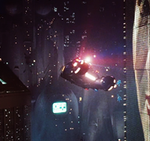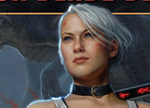This year, I set out to do NaNoWriMo (National Novel Writing Month). I’m not a stranger to it. A few years ago, I even succeeded in writing a 50 thousand word novel in a month. It was utter crap, as NaNoWriMo projects often are.
And this year, I stopped after about 7 thousand words.
I think it was the right decision.
There are a number of reasons I do participate in NaNoWriMo:
- Establish A Routine. To achieve success, I need to write an average of 1667 words a day. One of the best ways to do that is to develop a habit for daily writing. Personally, I can draft about a thousand words an hour if I’m “in the zone,” so two hours a day is plenty for NaNoWriMo. Two hours a day is a lot, but it’s not out of the question if I prioritize it.
- Efficiency. 1667 words a day. That’s a lot. I need to draft without fear. The goal is solely to write the words. They don’t need to be good words, they just need to be words on paper, so to speak. I can fix them later. I like how C.J. Cherryh put it. “It is perfectly okay to write garbage — as long as you edit brilliantly.”
- Accomplishment. Producing a complete draft of a novel is quite an accomplishment. It’s something one can be proud of. Producing even a chapter of a novel is an accomplishment. NaNoWriMo certainly gives me that feeling of accomplishment.
- Focus. I can’t write 1667 words a day if I spend my time on Facebook, Twitter, or dealing with life’s random interruptions. Writing at speed requires that I shut the door on those distractions and focus on the page in front of me. That’s a good habit, and it’s how I complete things.
So, why the hell did I quit?
NaNoWriMo kept me from writing.
I don’t need NaNoWriMo to motivate my regular writing habit. Or my focus. Or even my efficiency. I write every day. I’ve succeeded in writing every day for well over a year, with very few exceptions.
It’s an addiction. I need it to get through my week. Storytelling is my creative outlet, and I’m one of those crazy people that absolutely needs to create. I get depressed if I’m not able to do so.
I don’t need NaNoWriMo’s help to get me writing. I’m already doing it.
And I don’t need NaNoWriMo to give me a sense of accomplishment. I’ve written a 90k word urban fantasy that in the final stages of critique and revisions. I’m almost ready to send it out to agents and publishers.
I certainly feel accomplished. I wrote a book. That’s a big deal. I can confidently call myself a writer. And I hope to call myself a “published writer” at some point in the not too distant future (although publishing can move at glacial speeds.)
NaNoWriMo was getting in the way of that accomplishment. It was distracting me from the vital work of finishing up the critique work, of polishing, of preparing my book for submission. The work of writing was keeping me from the work of writing.
Heck, even writing this article is taking away valuable time from polishing my book. Best get back to it.












